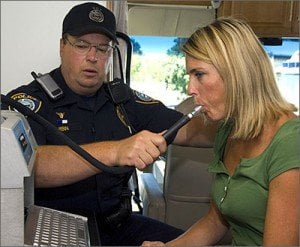The penalties for DUI in California are severe. But under certain circumstances, extra penalties are applied as a result of aggravating factors.

These extra penalties – also called sentencing enhancements – are amplifications of the penalties which apply to “regular” DUI convictions. There are three primary scenarios that bring the sentencing enhancements into play; longer jail sentences, larger fines, more lengthy license suspensions are a few of the common consequences.
Being convicted of a DUI can have serious repercussions. Penalties for a DUI conviction may include any, some, or all of the following:
- Jail time.
- Fines.
- Community service.
- Probation.
- Electronic monitoring.
- Work release.
- Alcohol education programs.
- Driver’s license suspension.
- Alcohol monitoring.
- The mandatory use of ignition interlock devices (IID).
In addition to the criminal and civil sanctions for DUI offenses specified under 23152 VC and 23153 VC, further DUI sentencing enhancements are defined under 23578 VC.
There are three primary circumstances that may result in DUI sentencing enhancements: excessive blood alcohol, collisions, and refusal to submit to testing.
Excessive blood alcohol
A volunteer undergoes breath testing during a police training exercise.
California’s threshold for blood alcohol (BAC) is .08. If a motorist tests over that limit, they may be charged and convicted for DUI. The higher the BAC, the more intoxicated the driver, which is generally associated with increased potential for dangerous driving behavior. If the driver’s BAC is .15 or higher – approaching twice the legal limit – it is considered excessive blood alcohol under California law. If convicted, the offender may be subject to a sentencing enhancement under 23578 VC.
Collision and injuries to others
At the core, DUI enforcement is all about protecting public safety. Collisions with other vehicles and/or injuries to others are very real risks when it comes to driving under the influence and may subject the offender to DUI sentencing enhancements.
Refusal
The third circumstance which commonly results in DUI sentencing enhancements is refusal to take a post-arrest chemical test; either breath, blood, or urine. It is important to note that field sobriety tests which are administered prior to arrest can and should be refused.
When an individual applies for a California driver’s license, they have already agreed to take a post-arrest chemical test if suspected of driving while under the influence. This concept is spelled out in California’s implied consent law, 23612 VC.
In other words, if a motorist is arrested for suspected DUI, they cannot lawfully refuse to submit to a chemical test. Such refusal may subject them to a sentencing enhancement under 23578 VC.
Additional possible sentence enhancements
In addition to the two circumstances noted above, sentencing enhancements may also apply in the following situations:
- Prior DUI convictions within the past ten years.
- DUI involving child endangerment.
- DUI combined with excessive speeding and/or reckless driving.
As always, criminal penalties depend on the totality of the circumstances and the defendant’s prior record. The prosecution and judge have broad discretion when determining the actual sentence.
Criminal penalties defined by 23578 VC
As would be expected, the criminal penalties specified by 23578 VC are amplifications of “regular” DUI penalties. For example, for a first-time DUI with a sentencing enhancement, the driver’s license suspension period is increased from four months to six months, while the mandatory DUI class requirement increases from three months to nine months.
An offender sentenced under 23578 VC may receive a longer jail sentence, higher fines, longer probation, and additional court-ordered penalties as the judge sees fit. It is important to note that courts in different jurisdictions treat sentencing enhancements differently. For example, while some courts will rely upon increased fines, other courts routinely add several days to a jail sentence.










